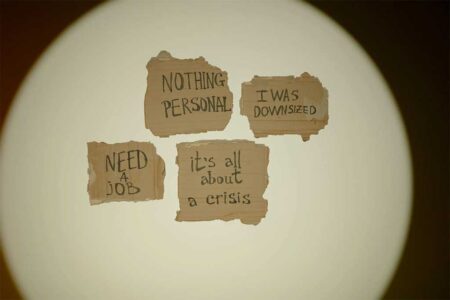We are at work as much as we are at home; in some circumstances, we are at work more than home. With these long hours at the office, you’re bound to bond with co-workers.
Co-workers are prime friendship material. They relate to your day-to-day. They understand the stresses and pressures of work. They see you in your victories and your losses. It’s nice to have a comrade—someone you enjoy going to work and seeing.
But when do work friendships become too much? Consider these points:
Would you be friends if one of you quit your job?
It’s easy to get wrapped up in a friendship with someone you’re spending “forced” time with. They might be a great person, with a fantastic personality, but if you were to quit how close would you keep in contact with this person? Rhonda O’Rah Watson, Managing Consultant for PersonalAwareness LLC, says “The term friendship has gotten loosely defined. There was a time when the term really meant someone who shared your values, and genuinely cares about you.” Who can you turn to if your work relationship fades out? Watson continues to describe what you need to look for in a true friend, “[They] help us to feel special and reassure our unique value as an individual. So by all means establish friendships at work, but make sure to expand your definition of friendship so that your relationships are supportive and nourishing.”
What happens if one of you advances beyond the other?
It’s one thing to have a great relationship with your boss, but it’s another to be close friends with your boss. There has to be a line between professionalism and friendship. What if you received a promotion and were tasked with managing your work friend? Lisa Copeland from The Culture Works advises, “When the friendship is a supervisor/employee, there’s no reason not to be friends, but both parties must have boundaries that they both respect.” Would they take you seriously based on the past interactions that you’ve had together? Copeland believes you should have friends outside the work place also. “It creates balance in life. It’s important to one’s well-being not to be consumed 24/7 in work. ” Jon Minners, Senior Marketing Manager at Vault also warns, “Friendships between supervisors and subordinates are also the subject to rumor. She’s the manager’s favorite. He got the promotion because he’s friends with the boss. You want to be careful, because a good employee’s reputation can be hampered by a friendship with a supervisor regardless of how good their work is.”
How strong is your trust?
An after-work cocktail is a perfectly normal for a work friendship. The clock hits 5:00 and you need a nice venting session with someone that understands that day you had. After a cocktail or two, if you become a little more loose-lipped than you would have liked, can you trust your work friend to keep a secret? This isn’t promoting work gossip, but the fact of the matter is, people talk about other people or frustrations more freely with friends than they would with their boss. If you said something you wouldn’t want your boss to hear, would your friend respect discretion? Who else in your life could you vent to without fearing repercussions?
If you have a personal emergency who would you turn to?
It’s not always comfortable talking to your co-workers about personal matters, no matter how close you’ve become. If you really needed to turn to someone for help, would your co-worker be your first choice? It’s important to have a good working culture, and making friends with coworkers is a wonderful thing.
Work brings you closer to people that you may not have otherwise met. But keep in mind, work isn’t your whole life. Foster your relationships outside of work. There are many instances where you’ll need a break from your work life, and a friend who meets the requirements of each aforementioned point is just the remedy.
This story first appeared on More.com by Megan Wells.
Megan Wells
Megan Wells is a data journalist and digital content editor based in San Francisco, California. Wells currently focuses on personal finance, mortgages, and lifestyle content. Wells’ work has appeared in publications like Fox, Nasdaq, MSN, and The Motley Fool. Wells also spoke at the 2015 Exceptional Women in Publishing conference.









